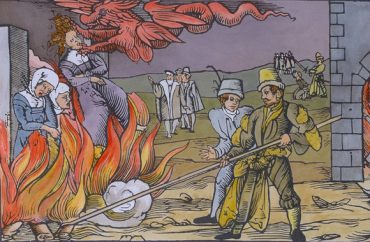
A precrime approach to harassment
The Supreme Court’s 1999 Davis ruling held that an educational institution can be liable under Title IX for ignoring student-on-student harassment that is “so severe, pervasive, and objectively offensive” that it effectively denies an education to the harassment victim (emphasis added).
The University of Mississippi has no patience for such caution. It reserves the right to punish students for a single statement that someone finds offensive.
Inside Higher Ed reports that the taxpayer-funded institution’s outgoing general counsel crafted the zero-tolerance harassment policy and believes it will survive constitutional scrutiny, even though “it appears to deviate … from what lawyers and free speech experts consider the norm.”
It’s not clear why the policy hasn’t drawn apparent scrutiny before, as Lee Tyner claims “the bulk” of it “has been in effect for nearly a decade.”
His aim is to stop the university from becoming liable in the first place by expanding the adverb “effectively” (as in, “effectively deny a victim access to university resources”) to its breaking point:
“Some people would say you can’t punish a one-off racial slur because it’s not pervasive,” Tyner said. “Effectively my position is to stop them from doing it again and again before it becomes pervasive.” …
Tyner expressed frustration that most legal scholars have interpreted past cases to mean that colleges can’t interfere until they would be liable — he called for some “smart analysis” on this issue that could help institutions find that wiggle room.
“You’ve got to be able to cure the hostile environment before it’s created,” he said.
https://twitter.com/ArleneGarrison/status/839555330749173762
MORE: Ole Miss mocked for shutting down event over banana peel
Tyner says his policy is approved by the Foundation for Individual Rights in Education, and indeed the university has both an overall green-light rating (“policies nominally protect free speech”) and the same rating for all of its individual policies, all of which were last reviewed by FIRE in August.
Both the university’s sexual harassment policy and its general harassment policy tweak the Davis standard by introducing “or” into the equation, turning a three-part test into a one-part test:
Harassment of a sexual nature that is so objectively offensive, pervasive, or severe that it effectively denies the victim access …
For conduct to violate this policy, the conduct must be more than merely offensive; it must be so objectively offensive, pervasive, and/or severe that if repeated it would effectively deny the victim access …
This “repeated” condition on its face, however, contradicts Tyner’s expressed view that a “one-off racial slur” (with no objective definition) is punishable under the public university’s harassment policy.
It specifies that even “pervasive” conduct must be “repeated” to be actionable – the inverse of Tyner’s argument that a nonrepeated action must be punished “before it becomes pervasive.”
Consider where Tyner’s “one-off” could lead, particularly at a Deep South university.
It’s generally (not universally) considered permissible among African Americans to use the n-word among each other as a synonym for “friend” or “acquaintance.”
But under Tyner’s interpretation, a black student using this greeting for the first time with a black peer who is deeply uncomfortable with the word in any context could be punished for “harassment.”
To hold otherwise would be to enforce stereotypes on the university’s black students – that they aren’t allowed to be offended by a friendly intra-racial use of the n-word.
Let’s hope the university’s next general counsel reviews exactly how this policy could be weaponized against campus minorities, not just white students on Halloween.
Just think of it as curing “the hostile environment before it’s created.”
Read the article and FIRE’s Ole Miss rating.
MORE: Ole Miss paid rapper who degrades women $130,000 for concert
IMAGE: Everett Historical/Shutterstock
Like The College Fix on Facebook / Follow us on Twitter






Please join the conversation about our stories on Facebook, Twitter, Instagram, Reddit, MeWe, Rumble, Gab, Minds and Gettr.